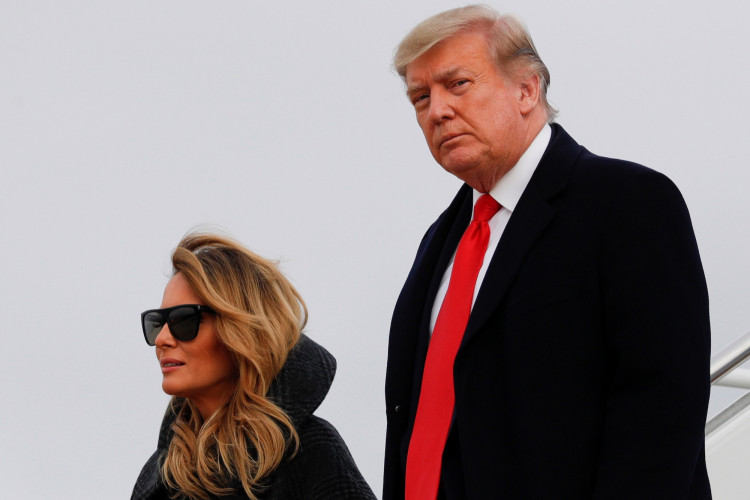Former President Donald Trump has filed a brief with the U.S. Supreme Court, arguing that he should be granted "absolute immunity from criminal prosecution for his official acts" while in office. The case, set to be heard by the justices on April 25, stems from Trump's appeal of a lower court's rejection of his request for immunity in the criminal case being pursued by Special Counsel Jack Smith.
In the filing, Trump's legal team contends that denying a former president criminal immunity would have far-reaching consequences for future presidents. They argue that such a denial "would incapacitate every future president with de facto blackmail and extortion while in office, and condemn him to years of post-office trauma at the hands of political opponents."
The brief further states, "The president cannot function, and the presidency itself cannot retain its vital independence, if the president faces criminal prosecution for official acts once he leaves office." Trump's lawyers claim that the threat of future prosecution and imprisonment could be wielded as a "political cudgel" to influence sensitive and controversial presidential decisions, undermining the strength, authority, and decisiveness of the presidency.
Special Counsel Jack Smith, who was appointed by U.S. Attorney General Merrick Garland in November 2022, brought four federal criminal counts against Trump in August 2023. These charges include conspiring to defraud the United States, obstructing the congressional certification of Biden's electoral victory, and conspiring against the right of Americans to vote.
In a February filing to the Supreme Court, Smith argued against presidential immunity, stating that "the nation has a compelling interest in seeing the charges brought to trial." He emphasized that the public interest in a prompt trial is at its highest when a former president is charged with "conspiring to subvert the electoral process so that he could remain in office."
The Supreme Court's decision to hear arguments on Trump's immunity bid next month has postponed the trial, providing a potential boost to the former president as he seeks to delay prosecutions while running for re-election. Trump faces three other pending criminal cases and has pleaded not guilty in all four, characterizing them as politically motivated.
Trump's legal team has made controversial arguments in support of their immunity claim, with one of his lawyers, D. John Sauer, refusing to deny that a president could hypothetically avoid criminal prosecution for ordering the assassination of a political rival. This stance has been met with criticism from legal experts who argue that accepting such a claim would grant the presidency near-imperial powers.
The brief also points to examples of past presidents whose political rivals or critics suggested they could face criminal charges, including Presidents Bill Clinton, George W. Bush, and Barack Obama. Notably, the brief also mentions conservative commentators who have argued that President Joe Biden should face charges for his immigration policy, although it does not address Trump's own suggestions that he would have Biden indicted if elected.
As the Supreme Court prepares to hear oral arguments in the case on April 25, the nation's top judicial body, with its 6-3 conservative majority, including three justices appointed by Trump, finds itself once again thrust into the election fray. The outcome of this case could have significant implications for the balance of power between the executive branch and the rule of law, as well as the potential consequences faced by former presidents for their actions while in office.






